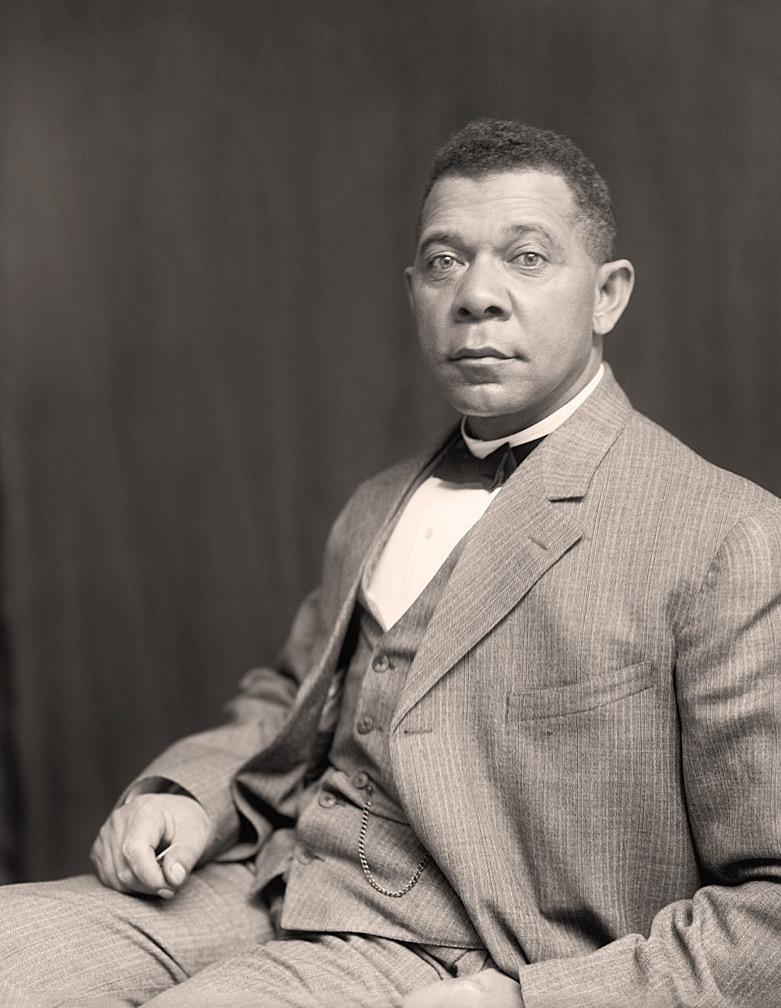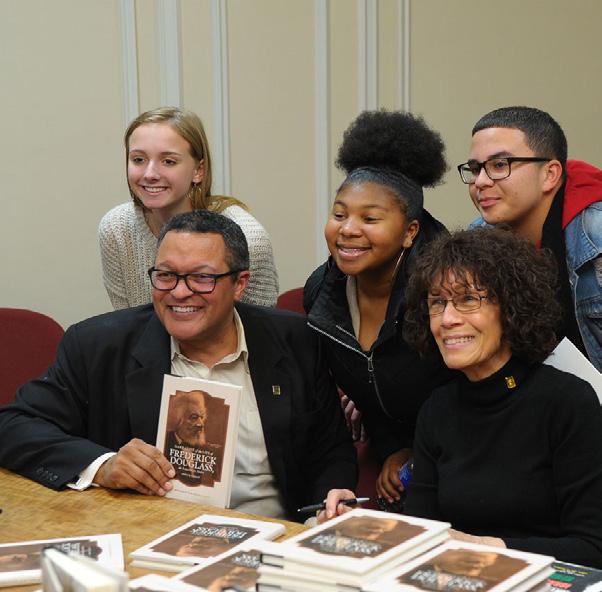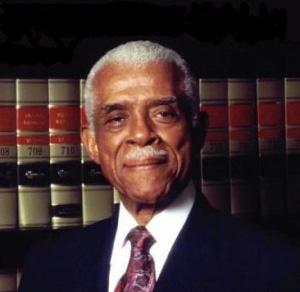
3 minute read
Events: The Donald L. Hollowell Lecture
The History, Human Rights, and the Power of One
by Anna Scheyett
With this question, Kenneth B. Morris, Jr. called his audience to action during the 2021 Donald L. Hollowell Lecture, held virtually on February 23, 2021.

Kenneth B. Morris, Jr., great-great-great-grandson of Frederick Douglass and great-great-grandson of Booker T. Washington, delivers the Hollowell Lecture.
Photo by UGA SSW
Morris understands the importance of history and commitment to future generations—it is in his genes. Morris is the great-great-great-grandson of Frederick Douglass, the Great Abolitionist. He is also the great-great-grandson of Booker T. Washington, the famed educator and founder of Tuskegee Institute. As co-founder of Frederick Douglass Family Initiatives (FDFI), Morris continues a family legacy in anti-slavery, education and anti-racism while helping to craft and implement innovative programming to address these persistent issues still facing communities today.

Portrait of Frederick Douglass (1818-1895)
Engraved by J.C. Buttre from a daguerretotype, circa 1855.
During his talk, Morris described the sense of responsibility he experienced as a descendant of two of the most influential men in American history. He shared pictures of his parents and grandparents, and smiled as he told the story of how his grandmother Nettie Hancock Washington met his grandfather Frederick Douglass, III. But his smile and gentle voice belie a steely commitment to change. With a legacy of abolitionists on one side, and a legacy of education on the other, Morris built a vision of abolition through education. He lives this vision through his work in the FDFI and his fight against human trafficking—modern-day slavery.

Booker T. Washington (1856-1915)
Photograph by Frances Benjamin Johnston, circa 1895
Inspiring his listeners, Morris talked about his One Million Abolitionists project, which has the goal of giving one million copies of the Narrative of the Life of Frederick Douglass, an American Slave to children, along with a curriculum focused on empowerment and civic engagement. Morris described how his initiative developed, saying “We went into the schools with a program called ‘History, Human Rights, and the Power of One.’ I would just travel around from school to school, talking about history, talking about contemporary forms of slavery. And then people started to ask, teachers and parents and students … ‘How can we be modern day abolitionists like Frederick Douglass? How can we use our talent, our passion, our creativity, our intellect to spread the word about this in our communities?’ And so we developed service learning, civic engagement … curricula that we dispersed for free on our website and now we are in hundreds of schools all over the country.”

FDFI President Kenneth B. Morris, Jr. and his mother, Chairperson Nettie Washington Douglass, hand out copies of the Narrative of the Life of Frederick Douglass, an American Slave to local students from Rochester, NY in 2019. The One Million Abolitionists project is distributing one million hardcover editions of the Narrative to students across the country.
Source: https://fdfi.org/our-initiatives/#1million
Dr. Llewellyn Cornelius, the Donald L. Hollowell professor and director of the Center for Social Justice, Human and Civil Rights hosted the event and asked Morris what young people should know about the work ahead in the fight for social justice. In reply, Morris emphasized the importance of learning about the past, from the lives of civil rights leaders like Donald Hollowell. He talked about using voice, about voting and promoting just policy, and of staying passionate and committed to the future. His words reminded his audience that we each need to learn the stories of the past, and commit to acting for justice now.
“We all have greatness flowing through our veins.” Morris said, as he ended the evening. “And history lives in each of us. But the future depends on how we carry that forth.”

Donald L. Hollowell
Source: UGA School of Social Work
Donald L. Hollowell (1917-2004) was a civil rights attorney in Georgia during the Civil Rights Movement. He fought racial segregation, served as the first Black regional director of a major federal agency, the Equal Employment Opportunity Commission, and worked to increase African American voters as president of the Voter Education Project. Hollowell is best remembered for his instrumental role in winning the desegregation of the University of Georgia in 1961.










